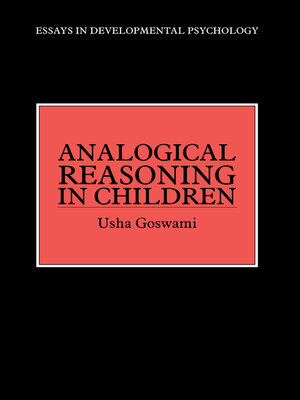
Sign up to save your library
With an OverDrive account, you can save your favorite libraries for at-a-glance information about availability. Find out more about OverDrive accounts.
Find this title in Libby, the library reading app by OverDrive.



Search for a digital library with this title
Title found at these libraries:
| Library Name | Distance |
|---|---|
| Loading... |
Analogical reasoning is a fundamental cognitive skill, involved in classification, learning, problem-solving and creative thinking, and should be a basic building block of cognitive development. However, for a long time researchers have believed that children are incapable of reasoning by analogy. This book argues that this is far from the case, and that analogical reasoning may be available very early in development. Recent research has shown that even 3-year-olds can solve analogies, and that infants can reason about relational similarity, which is the hallmark of analogy.
The book traces the roots of the popular misconceptions about children's analogical abilities and argues that when children fail to use analogies, it is because they do not understand the relations underlying the analogy rather than because they are incapable of analogical reasoning. The author argues that young children spontaneously use analogies in learning, and that their analogies can sometimes lead them into misconceptions. In the "real worlds" of their classrooms, children use analogies when learning basic skills like reading, and even babies seem to use analogies to learn about the world around them.







